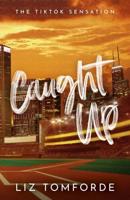Publisher's Synopsis
This historic book may have numerous typos and missing text. Purchasers can usually download a free scanned copy of the original book (without typos) from the publisher. Not indexed. Not illustrated. 1893 edition. Excerpt: ...temperament. And what with spites and what with fears, You cannot let a body be; It's always ringing in your ears, " They call this man as good as me! " What profits now to understand The merits of a spotless shirt--A dapper boot--a little hand--If half the little soul is dirt? You talk of tinsel!--why, we see The old mark of rouge upon your cheeks. You prate of Nature--you are he That spilt his life about the cliques. A Timon you! nay, nay for shame; It looks too arrogant a jest--The fierce old man--to take his name, You bandbox. Off, and let him rest. We can scarcely pity the man who had invited this terrible onslaught and suffered by it so dreadfully. But Tennyson himself was inclined to magnanimity; he was the first to M regret his own denunciation; and within a week of the infliction of the punishment he had written the poem which still appears among his works--Ah God! the petty fools of rhyme That shriek and sweat in pigmy wars Before the stony face of Time, And lookM at by the silent stars: Who hate each other for a song, And do their little best to bite And pinch their brethren in the throng, And scratch the very dead for spite: And strain to make an inch of room For their sweet selves, and cannot hear The sullen Lethe rolling doom On them and theirs and all things here: When one small touch of Charity Could lift them nearer God-like state Than if the crowded Orb should cry Like those who cried Diana, great: And I too, talk, and lose the touch I talk of. Surely, after all, The noblest answer unto such Is perfect stillness when they brawl. The "Afterthought" was nobly conceived; and the dedication of Harold to Lytton's son gave practical effect in the most graceful manner to the old expression of regret and the wish for greater...





















